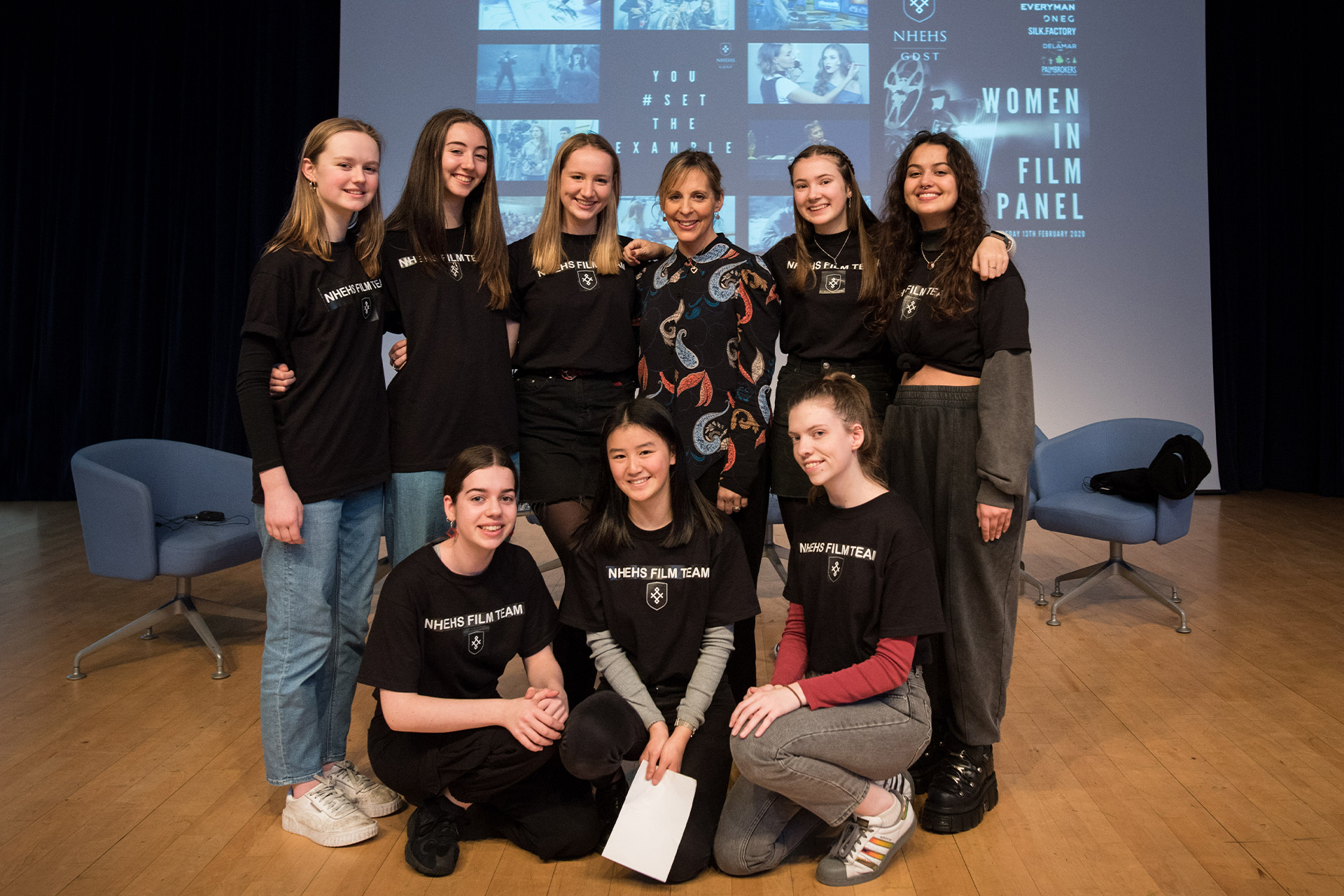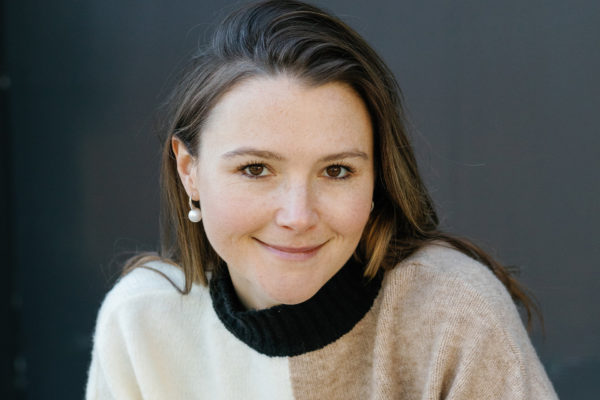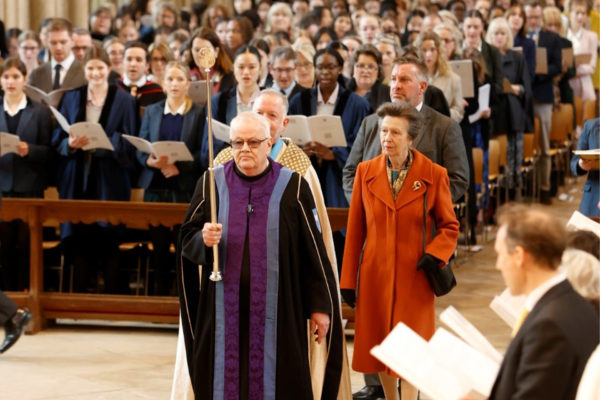How To Prepare For The Film Industry
By
3 months ago
Schools are preparing students for the film industry, learns Elizabeth Ivens

Record-breaking figures for film production in the UK and major studio expansions have cemented the British film industry’s role as a leading global player.
Pinewood Studios in Buckinghamshire, where James Bond and the Star Wars franchises were filmed, and Warner Brothers Studios near Watford, home of the Harry Potter franchise, are both planning vast new facilities.
And Pinewood’s Shepperton Studios in Surrey are now the second biggest film studios in the world following the completion of a massive £500m expansion. Meanwhile, new studios and production hubs are opening across the UK.
But while the industry is booming with the latest statistics released by the British Film Institute revealing a record £6.27 billion film and high-end TV production spend in the UK (2022), industry insiders have long been sounding concern about a future skills shortage.
Warner Brothers’ planned 400,000 square foot expansion is set to create 4000 jobs alone when it is completed in 2027.
And film studio boss Robert Laycock, Chief Executive of Marlow Film Studios, says all the major studios are experiencing a ‘skills shortage’ and estimates over 20,000 new jobs will be needed in west London alone by 2025.

Film production at Hurtwood House
The Schools Helping Students To Get Into Film
At Hurtwood House near Dorking in Surrey, a specialist co-ed Sixth Form renowned for its creative expertise, Director of Admissions Tina Jackson is acutely aware of the need to train the next generation for opportunities in the creative industries.
‘There has never been a better time than in the next three to five years for young people to go into film,’ says Jackson. ‘Money is pouring into these studios.’
Students at Hurtwood can immerse themselves in film on and off the curriculum. As well as a host of performance and acting opportunities including in an annual musical and in a pop concert, the school also provides many opportunities to learn practical filmmaking skills and even make documentaries.
As part of the school’s Media Studies A-level – Hurtwood’s most popular A-level with around 160 students – just under half of the school’s 360 students studying it in the last year – students spend half of the CIE (Cambridge International Examinations) syllabus developing invaluable practical film skills.
Students have to produce the first two to three minutes of a feature film and also a pop video, learning all aspects of what goes into the production, even including artwork, branding and promotion.
‘When they make their films,’ Jackson explains, ‘they learn how to use all the equipment including the cameras and different lenses, they are responsible for writing the script, casting it, creating the set, choosing and planning locations, shooting it, editing it and everything that goes into it.
‘There are so many jobs within the film industry – not just the obvious ones – so it’s really important that our students experience every aspect of producing that practical work.’
Professional standard staff also help to make the difference for students at Hurtwood with most of the school’s Media teachers having previously worked in the film industry.

Hurtwood House’s production of Grease
‘We do have amazing facilities including a film studio, a big editing suite and lots of cameras but it is more about the people – they are the ones that make Hurtwood different.
‘We have teachers who have worked on set as DOPs (Directors of Photography), teachers who have worked as writers, producers and directors and teachers who specialised in post-production.’
At ACS International Schools, which has three co-ed all through schools in Greater London – at Cobham, Egham and Hillingdon, film is a key part of its recently-launched Arts pathway. Graeme Lawrie MBE, Partnerships Director at ACS, says the school forges partnerships with industry experts to help students understand the variety of careers on offer in the sector.
‘In the last five years or so, film has not had the amount of support it has needed on school curriculums,’ he stresses. ‘Many people will think of being an actor or behind the camera when you think of the film industry but there are a huge number of roles out there.
‘What we are trying to do is ensure that all children see what opportunities are out there – not only in the film industry but also in the gaming industry which is bigger than ever and involves a lot of film skills.’
At ACS Hillingdon, students enjoy state of the art editing facilities and can learn about filmmaking from dedicated film teachers as part of the International Baccalaureate’s Career-related programme, which blends academic and vocational courses. As part of this, ACS Hillingdon has a long-running partnership with Pinewood Studios which enables pupils to attend week-long workshops and get input from industry mentors. ‘Our work with Pinewood helps to show and prepare students for the amazing opportunities on their own doorstep,’ he says.
At one London school, campaigning by girls about perceived inequality in the film industry led to a higher profile for film across their entire school network and plaudits from the BFI for their initiative. It began when ten Sixth Formers from Notting Hill and Ealing High School (NHEHS) GDST started an awareness campaign called #SETtheexample in 2020, writing to prominent women in the industry and securing their involvement in an inaugural film festival.

Notting Hill & Ealing High School pupils at the Film Festival Celebrity Panel
Their campaigning efforts also brought together film companies, who offered their time for a series of workshops on topics as varied as special effects, film animation and set design. It also led to the launch of a film-making competition across the GDST network of 25 schools and a regular film festival at NHEHS, where pupils create and submit films before holding a screening and Oscar-style ceremony. Students at NHEHS, which has its own 360 drama studio, are able to learn about technical staging and lighting as well as access to set design and make-up, ensuring they have exposure to a variety of skills.
Back in Surrey, Hurtwood boasts its own ‘Film Academy’ which acts ‘as a production company within the school’ and is ‘a step up to the next level’ for students who are very serious about a career in film, explains Tina Jackson.
Around a third of Hurtwood’s Media students are keen to pursue a career in film and head off to destinations including Bournemouth University, MetFilm School London, UAL London College of Communication and the University of Salford. Some students also go to institutions in America such as New York Film Academy. Former students also come back to Hurtwood to share their experiences. Recent speakers – including a freelance location manager and special effects and production specialists – were chosen to highlight the sheer range of careers in the industry.

Hurtwood House performance
‘We try and give students an understanding of all the skills they might need – it gives them a real insight hearing from people working at such a high level and really motivates them,’ explains Tina Jackson.
Meanwhile at ACS, Graeme Lawrie is firm believer in engaging all ages in film with young children at ACS ‘introduced to the technologies and asked to make their own little films from a young age’.
‘We find that the younger children often want to be YouTubers,’ he adds. ‘If you ask them about filming, they will instantly think of YouTube but we explain to them that YouTube is one thing but film takes it to another level. It’s about broadening their horizons a little bit.’
At NHEHS, film work also starts early with Year 9 music students challenged each summer term to create an original film with a judged ‘Oscars’ ceremony as a finale. Headmaster Matthew Shoults believes the skills learnt in filmmaking on and off the curriculum prepare students for the future world of work: ‘Employers want graduates who are digitally literature, confident communicators, who are resilient, can take the initiative, work in teams, be analytical and problem solve. These are the skills they learn in filmmaking.’
Graeme Lawrie believes the solution to solving future skills shortages in the film industry is for more people in the film industry to dedicate their time to partnerships. ‘If there is a skills gap in talent coming out of the schools, chances are there’s also a skills gap in the future pathway for the film industry. The solution is partnerships.
‘The more the industry can supply us with experts without charging us thousands, the more we can share that expertise. If the film industry needs that future talent, they will see a payback within a few years if they help us. Lots of schools are doing wonderful things and sharing best practice but the industry can be very rare in that conversation.’







